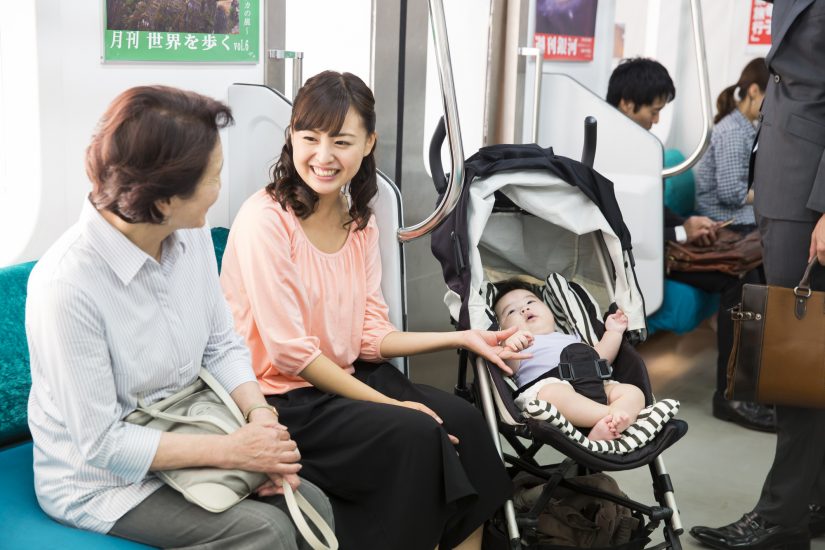Here is some examples of what is perceived as appropriate or inappropriate deportment in Japan. With the exception of a few misdeeds, the Japanese have very similar values to the West when it comes to decent comportment on public transportation. However, some behaviour might be taken more seriously and could trigger some dirty looks on the train.
Phones on the train
Speaking on the phone is most likely the ultimate sin when taking the train in Japan. Other passengers will find it extremely inconsiderate as they do not like being disturbed by people’s voices. This is why you will come upon those stickers that state “No Phone”, and that continuous announcement: “Refrain from talking on the phone”. You might also notice commuters getting off the train when getting a call so as not to disturb other passengers. In extreme circumstances, a salaryman who needs to speak to his boss will talk briefly in a hushed tone while covering the handset with his hand.
Eating and drinking on the train
An other major nuisance for the Japanese is eating and drinking, particularly smelly food. Eating one’s lunch on the train is definitely frowned upon unless you are sitting in a place designated for that purpose. Note that older generations might even get irked regardless of what you are eating or drinking.
Leaving your rubbish behind
Somewhat connected to not drinking or eating on the train, leaving anything on the train creates an inconvenience. We all remember that scene that went viral on the Internet where Japanese supporters were picking up after themselves in a football stadium during the World Cup.
Rubbish is such a hindrance to Japanese people that you will even spot some pedestrians collecting some random pieces of paper or cigarette butts and keep them until they find a bin or even until they make it home to dispose of them.
Making noise
Speaking loudly, laughing out loud, listening to loud music or making any kind of unusual noises is considered a disturbance. It’s sometimes unpredictable what would pester other travellers. I was even once given the stink eye for typing on my tablet as the clickety-clack of the space key seemed to annoy my neighbour.
Giving up your seat to those less able to stand
This would most likely be the number one rule of conduct in Western countries. No one can bear seeing a pregnant woman or an elderly person standing on a train and so anyone would jump on their feet if they spot one of those people regardless of where they are seated. In Japan, it seems a little trickier as “priority seats” are available on every transport and they are usually located at the beginning and the end of a wagon. Therefore, those in need will more naturally go towards these places hoping someone will give up their seat instead of just getting on the train and expecting that just anyone might do so. Although pregnant women will always be thankful for getting a seat, it can be a little more delicate with seniors citizens. Indeed, they might appreciate the gesture or they could also feel offended as pointing at their old age is never a compliment.
Waiting in line and let people off the train
An other proof of mannerly behaviour is to form a queue outside the train or bus so that the first arrived can get on before everyone. That also entails letting passengers off before you make your way in yourself.
Some of those rules might sound a little excessive, but they are not all surprising considering the commute time and how cramped trains can get, particularly in a city like Tokyo. There are currently around 20 million passengers travelling through Tokyo every day and this number will just keep on growing in the next decades.








